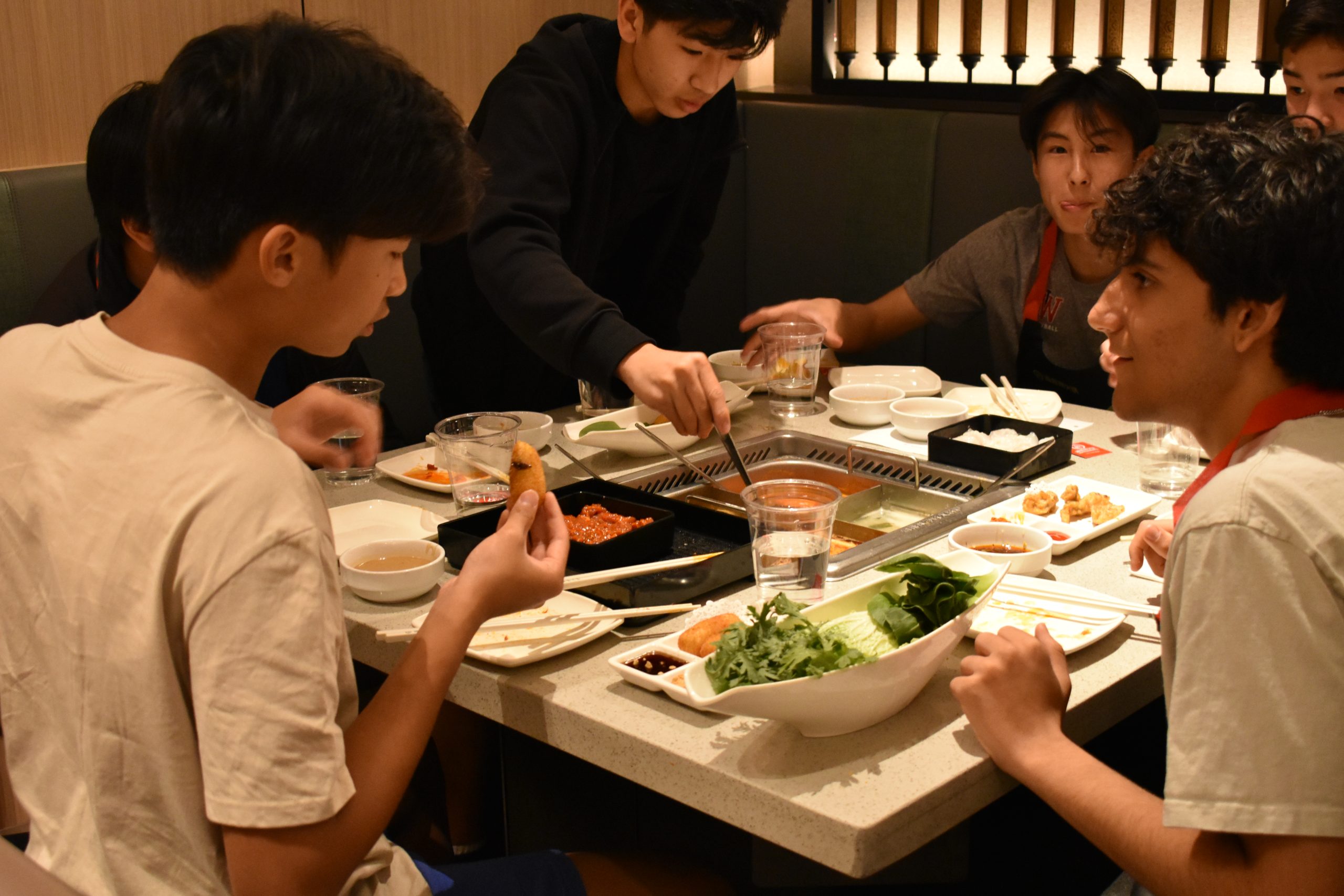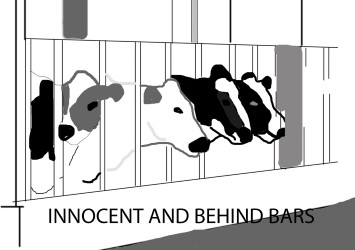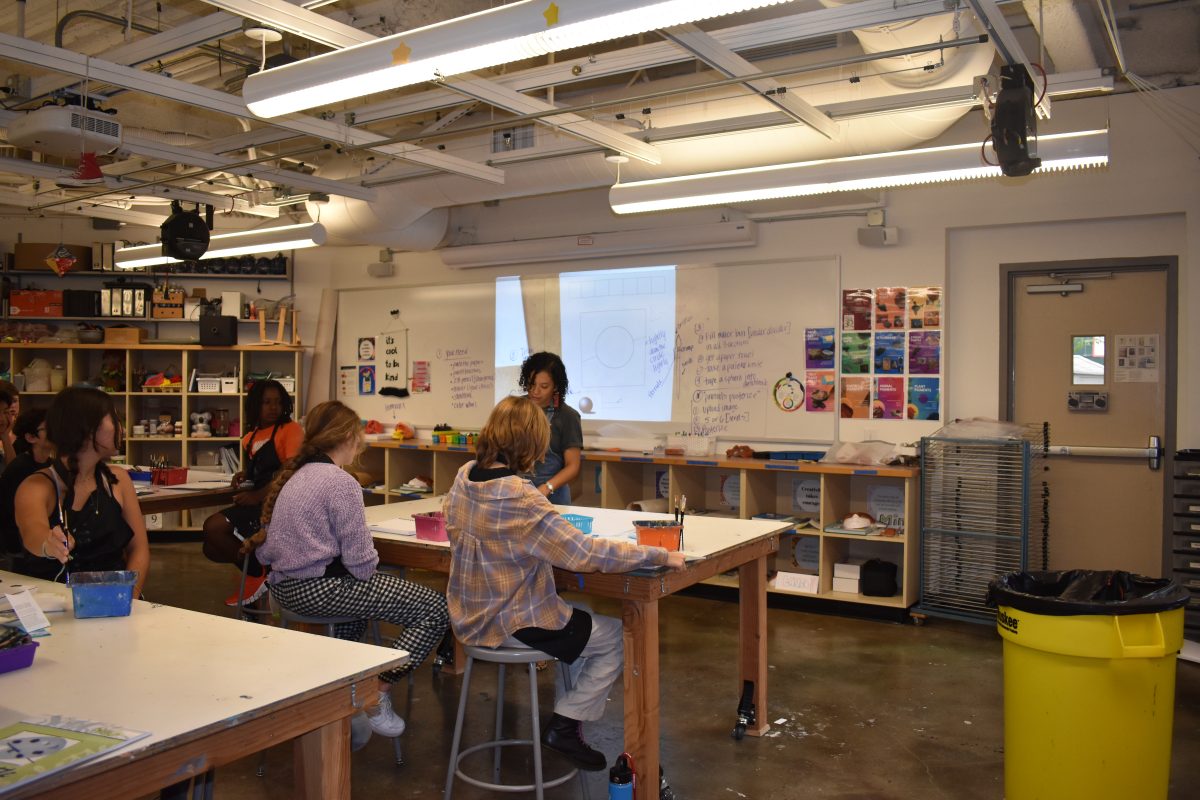People should consider veganism for a fair world
By Olivia Gubel ’21
When a wheelbarrow is pushed, it carves a path. Each time it is pushed through the path, the task becomes less tedious because the path has been set, it becomes so easy, it becomes effortless. As humans, we rarely break them or intentionally create habits. It is difficult and seemingly unnecessary to re-examine our decade- or even century-long habits with a critical eye. In particular, we have turned a blind eye to how we eat. Becoming vegan meant claiming freedom from habits I had become a prisoner of. Facing the cruel reality of the way our food is produced was difficult. I was only nine, yet I realized that I had already caused so much harm. My habits did not change until I was introduced to the merciless world of factory farming. My eyes were opened to how unkind I had been to living beings.
Gandhi once preached, “The greatness of a nation and its moral progress can be judged by the way its animals are treated.” According to that standard, we are in moral ruin. We treat the animals around us like their lives are worth nothing. We abuse them for our benefit and accept a superior position by force. One common myth seems to be that cows must be milked. Cows produce milk for the same reasons humans do: to nourish their young. Once the calf has grown, the cow will no longer produce milk. Cows on dairy farms are impregnated so that they will produce milk, with no break between pregnancies. Once the calf is born, it will not receive its mother’s milk. These cows are sent to be made into veal. In factory farms, it is typical for cows to be slaughtered at the age of four, one-fifth of their natural lifespan.
According to the National Humane Education Society, birds are confined so tightly that they become aggressive. Their beaks are burned off with no anesthesia to prevent attacks. Male chicks that come from an egg-producing mother are no use to the industry and are often sent to be ground up. Pregnant pigs are kept in crates where they are unable to turn. Piglets are forced to stay in their crates, and a mother will often suffocate her own piglets because of the lack of space. Animals feel pain and have communication, creativity, and awareness. It is not our place to decide that a living being with a lower intelligence is subject to death or abuse. We are justifying the act of eliminating those in society who do not match an arbitrary ideal we have set. Why are animals we call “pets” different from the ones we call “food”?
In addition to the animal suffering, eating animals and their products is causing great harm to our environment. According to the United Nations Food and Agriculture Organizations, over 400,000 gallons of water are used each year to produce meat for one person. That is equivalent to over 23,000 eight-minute showers. In addition, over 16,000 pounds of grain are used and about 11,000 square feet of forest are destroyed. That much grain could feed one person for 80 years. Personally, it is so alarming that there are countries all over the world that are starving, yet we are not looking carefully enough about how to produce food more efficiently. Most concerning, however, is the 7,300 pounds of carbon dioxide gas emitted annually due to factory farming. In 2016, Duke University found that pig waste from factory farms was discarded in impoverished black communities in North Carolina, causing asthma, heart disease, high blood pressure, asthma and depression in families. Some can not afford medical insurance and are being poisoned by the harsh chemicals. The Environmental Protection Agency stated that 16 pounds of vegetation must be consumed to produce a pound of meat. California is a drought-prone environment and over 55% of our water consumption goes to the meat and dairy industry.
Finally, meat and dairy are detrimental to our health. It is a common myth that milk can be hormone free. However, this is simply not a reality. While some farms may raise cows with no added hormones, cows produce milk for their calves, who need hormones to grow. We were raised on our mother’s milk but eventually no longer need it. It is also no secret that highly processed meats are cancerous, but what about all the so-called “healthy” meats? A study conducted by the American Journal of Medicine studied over 130,000 people over the course of 22 years and found that people who eat grilled skinless chicken are 52% more likely to acquire cancer. Plant foods are cholesterol free, and high cholesterol has been linked to higher rates of heart disease. The University of California found that diabetic patients who adopted a vegetarian diet benefited more than those who followed the ADA’s guidelines. However, the meat industry is a major financial supporter of the American Diabetes Association so they cannot advise a vegetarian diet. A Harvard Health Study found that women who ate one egg a day were subject to the same effects of smoking 25,000 cigarettes.
The consideration of a vegan lifestyle is accepting the facts, rather than looking at an illusion. A vegan lifestyle is a commitment to a more just and compassionate world.









